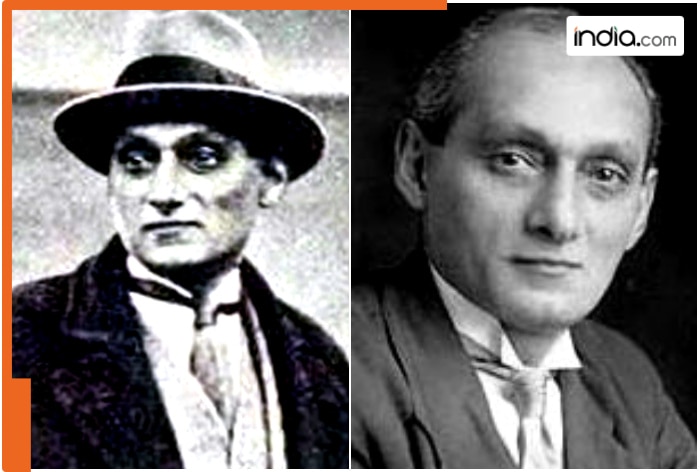Shapurji Saklatvala shared neither the surname of the Tatas nor their destiny. Unlike his cousins, Shapurji did not run the Tata Group. He was the first communist MP of Britain.
Like Ratan Tata or any other Tata family members, Shapurji Saklatvala is not that well-known to everyone. But he also shared the same bloodline of India’s supremely wealthy Tata clan. The son of a cotton merchant faced constant struggle, and his life was full of defiance and persistence. Surprisingly, Shapurji shared neither the surname of the Tatas nor their destiny. Unlike his cousins, Shapurji did not run the Tata Group, one of the world’s biggest business empires, but instead took a completely different route and became an outspoken and influential politician. During his political career, Shapurji lobbied for India’s freedom in the British Parliament and even clashed with Mahatma Gandhi. Let’s know the story of Shapurji Saklatvala.
Who Was Shapurji Saklatvala?
Shapurji was the son of a cotton merchant named Dorabji and Jerbai, who was the youngest daughter of Jamsetji Nusserwanji Tata. and we all know Jamsetji was the man who founded the Tata Group. Saklatvala’s family moved to Mumbai (Bombay that time) to live with Jerbai’s brother. Saklatvala faced first trauma at a very young age when his parents got separated. Then Jerbai’s brother (whose name was also Jamsetji) became the main paternal figure in his life.
But Dorab, elder son of Jamsetji, resent Saklatvala due to his father’s fondness for his younger cousin.
In the end, Dorab decided to limit Saklatvala’s participation in the family businesses, leading him to seek out different opportunities.
Bubonic Plague Outbreak In Bombay
Apart from family issues, Saklatvala was deeply moved by the devastation caused by the bubonic plague outbreak in Bombay in the late 1800s. He noted how the disease disproportionately affected the poor and labouring sections of society while the elite, including his kin, remained largely unaffected.
In those days, Saklatvala was a college-going youngster, who joined hands with Waldemar Haffkine, a Russian scientist who had fled his country for his revolutionary stance against Tsarist regime. Haffkine, on his part, had made a breakthrough in devising a vaccine for fighting the plague. Saklatvala went from door to door, convincing people to get themselves vaccinated.
Another influence was his relationship with Sally Marsh. She was a waitress to whom Saklatvala married in 1907.
The Political Journey
In 1905, when Saklatvala travelled to the UK he started immersed himself in politics to help the marginalised. In 1909, he joined the Labour Party and after 12 years he switched to Communist Party. Saklatvala fought for the rights of the working class both in India and in Britain.
Saklatvala’s gift for captivating speech played a huge part in making him popular among the masses. Consequently, in 1922, he was elected to parliament, holding office as a Member of Parliament for just short of seven years. During this period, he fervently promoted the need for India’s independence, never shying away from his convictions. His views were so strong that a fellow British-Indian MP from the Conservative Party deemed him a dangerous “radical communist.”
Saklatvala’s Role In India’s Freedom Movement
As a Member of Parliament, he travelled to India. His journey was marked with inspiring speeches designed to boost the spirits of the labor class and aspiring nationalists, urging them to step up and support the fight for independence. Beyond just speeches, he also took practical action; he had a substantial hand in setting the foundation and kickstarting the Communist Party of India in the places he landed.
His firmly held views on communism often clashed with Mahatma Gandhi’s commitment to non-violence, even though both were fighting against a common foe.
Despite disagreeing, the two personalities remained amicable. They were unified by their common goal: to terminate British rule.
Saklatvala’s fiery speeches in India ruffled a few feathers amongst the British authorities, to the point where they banned him to travel his birth country in 1927. Despite losing his position in the parliament in 1929, he remained staunch in his advocacy for India’s freedom. Until he breathed his last in 1936, Saklatvala kept his influence alive both in British political circles and within the Indian freedom movement. After his death, he was cremated and his ashes joined those of his parents and Jamsetji Tata in a London graveyard.

